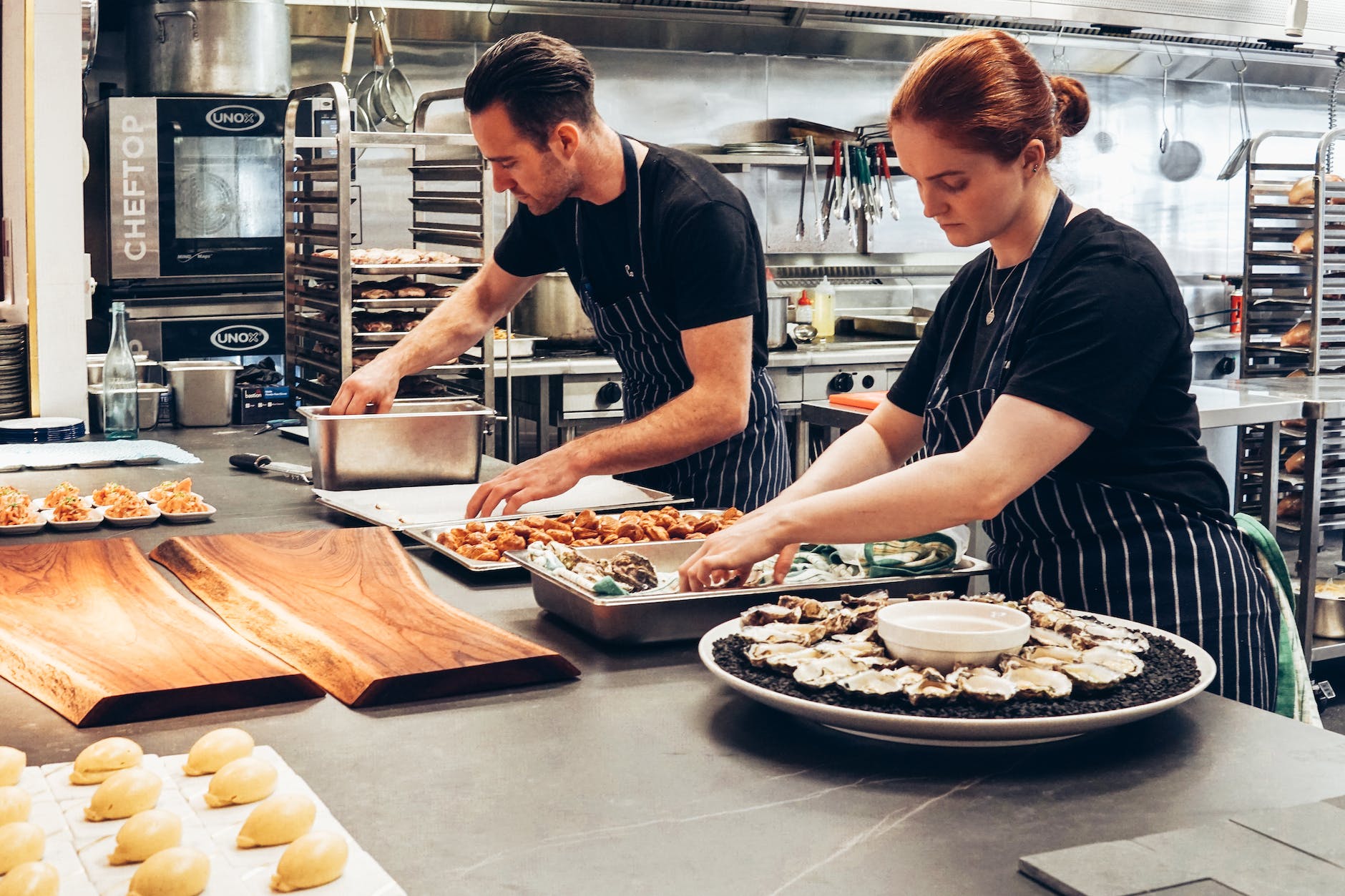
Photo by Elle Hughes on <a href="https://www.pexels.com/photo/man-and-woman-wearing-black-and-white-striped-aprons-cooking-2696064/" rel="nofollow">Pexels.com</a>
Food safety is essential for any restaurant. Without proper compliance and safety protocols, restaurants risk becoming a breeding ground for foodborne illnesses and other health risks that could ruin their reputation and put customers’ health at risk. In today’s world, food safety regulations are becoming increasingly stringent, making it necessary for restaurants to stay updated on the latest guidelines and regulations. By following these tips, you can ensure that your restaurant complies with all the required food safety regulations, providing a safe and healthy dining experience for your customers.
Follow the Food Safety Regulations
First and most importantly, begin by following the food safety regulations and guidelines that your country or state requires. If you are unsure of the latest codes, then it is essential to research this first. This way, you can ensure that your restaurant complies with all necessary food safety regulations, which will help ensure a safe and healthy dining experience for your customers. There are several different regulations that will vary based on your location. For example, in the United States, the Food and Drug Administration (FDA) Food Code is the primary regulation used to determine food safety and hygiene in restaurants.
Train Your Employees on Food Safety
Another critical aspect of ensuring compliance and food safety in your restaurant is training your employees on food safety protocols. Your employees should be well-versed in the latest food safety guidelines and understand how to prevent the growth of pathogens in your restaurant. This way, your employees can help to ensure that your restaurant maintains a high standard of food safety at all times. Training your employees on food safety should begin when they start working at your restaurant. You should hold regular meetings and training to discuss food safety guidelines and protocols. Regularly review your food safety guidelines and checklists. Make sure that your employees are well-versed in the information and can answer any questions you may have. This will ensure that your restaurant maintains the highest standard of food safety at all times.
Maintain a Clean and Organized Kitchen
Maintaining a clean and organized kitchen is one of the most critical aspects of ensuring food safety in your restaurant. This will help to prevent cross-contamination and the growth of pathogens, including E. coli, salmonella, and listeria. An organized kitchen will also help streamline your cooking process and make it easier to track your food inventory. To ensure that your kitchen is clean and organized, you should first create an inventory list of what is currently in your kitchen. This includes the types of equipment and ingredients you have, where they are stored, and how often they are used. Once you have this inventory list, it will be easier to track any food hazards and ensure that your kitchen stays clean and organized. This will help to prevent food safety risks, such as the growth of pathogens, in your kitchen.
Maintain Equipment
Equipment often goes overlooked when maintaining food safety in your restaurant, but it is just as important as proper hygiene and sanitation practices. Broken alliances can lead to poor hygiene standards and the risk of contamination. So you must regularly inspect your tools and equipment and perform repairs when needed. This can be getting a walk in freezer repair, oven repairs, or investing in better quality knives for easier food prep.
Conclusion
Food safety is essential for any restaurant. Restaurateurs must be up-to-date and stringent in ensuring all rules are followed. Fines can be financially damaging in the restaurant industry. Still, a loss of reputation can signal the end of your restaurant if you fail to comply with food regulations and hygiene standards.


